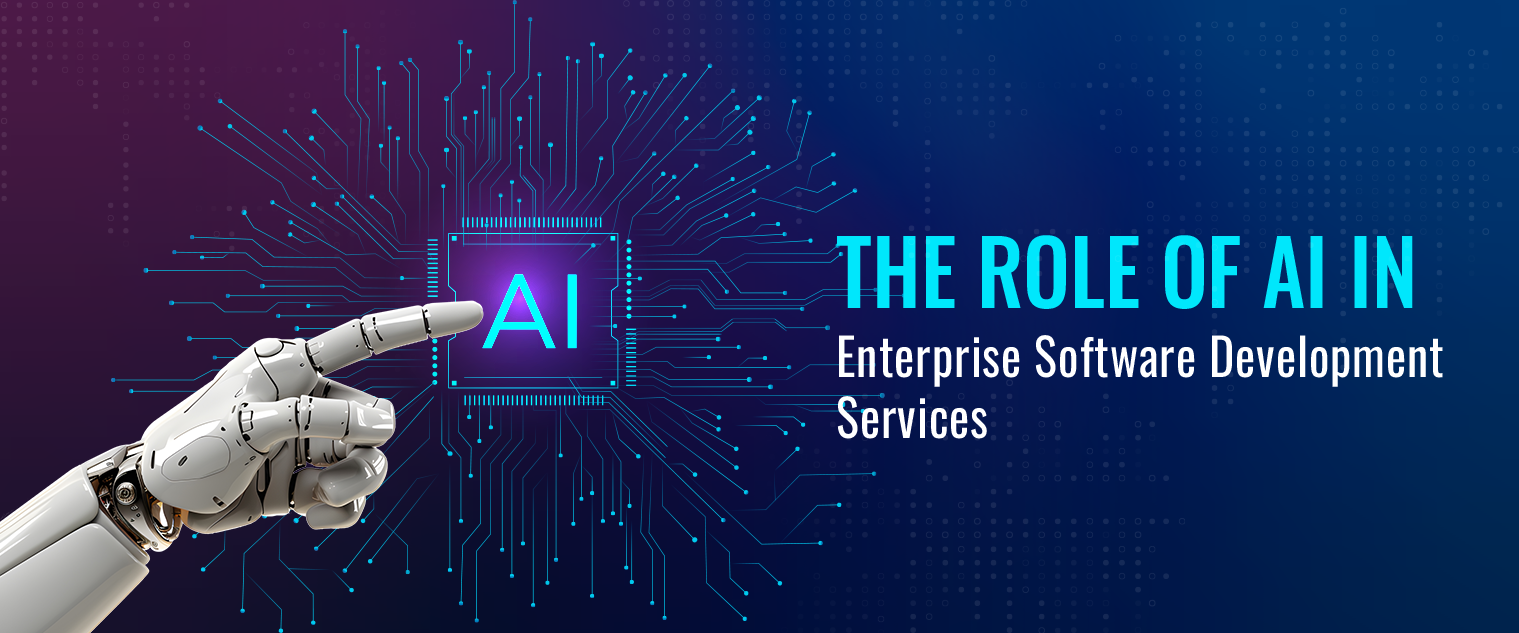Artificial Intelligence (AI) is no longer a distant concept for tech enthusiasts or forward-thinking companies—it’s here, and it’s transforming industries, including enterprise software development. If you’re wondering why AI is such a game-changer in this space, let’s dive in. Whether you’re a business owner or a tech enthusiast, understanding AI’s role in enterprise software development services is crucial for staying competitive in today’s fast-evolving landscape.
Why AI is Changing the Game in Enterprise Software Development
Traditional software development is often bogged down by manual processes, testing, and repetitive coding tasks. AI changes all that by bringing automation, machine learning, and data-driven decision-making to the table. The result? Smarter, faster, and more efficient software solutions.
Philosophically speaking, AI represents more than just automation; it symbolizes a shift in how we think about innovation. Where human-driven development processes were once slow and prone to errors, AI now introduces precision, speed, and adaptability. It’s like moving from a handcrafted boat to a high-speed yacht—it’s faster, more efficient, and optimized for the future.
Businesses no longer have to rely on human developers for every step of the software creation process. Machine learning models can now assist in everything from code generation to predictive maintenance, making enterprise software development a much more fluid and flexible endeavour. AI doesn’t just support it—it changes the rules of the game.
How AI is Streamlining Enterprise Software Development Services
So, how exactly does AI fit into enterprise software development services in Gurgaon? In practical terms, AI enhances every stage of the development lifecycle:
- Accelerating Development Timelines: AI tools can analyze massive datasets, generate code snippets, and automate repetitive tasks, cutting down development time. This means faster project completions and quicker time-to-market for businesses relying on custom software solutions.
- Improving Software Testing and Quality Assurance: Manual testing is tedious and prone to human error. AI steps in by automating software testing, identifying bugs, and even predicting potential points of failure before they occur. This increases the reliability of the software and minimizes downtime.
- Enabling Better Decision-Making with Predictive Analytics: AI can sift through vast amounts of data to identify trends, allowing businesses to make informed decisions. Whether it’s deciding when to update software, scale operations, or predict user behavior, AI-driven insights make decision-making more accurate.
The bottom line is simple: AI makes custom enterprise software development services quicker, more intelligent, and more effective software solutions.
Key Benefits of AI in Enterprise Software Development
Now that we understand how AI enhances the development process, let’s break down the key benefits it brings to the table:
- Automation of Repetitive Tasks: AI frees up human developers by handling repetitive coding and routine tasks. This allows developers to focus on more complex, value-driven activities like problem-solving and creative development.
- Improved Accuracy: With AI, human errors are drastically reduced, especially in testing and quality assurance. This leads to cleaner code, more reliable software, and fewer post-launch fixes.
- Cost Efficiency: Automating tasks means businesses can lower development costs by reducing the time and resources needed for manual processes. AI helps businesses achieve more without inflating budgets.
- Enhanced Customer Experiences: AI helps develop more personalized and responsive software solutions. By leveraging AI, businesses can create software that learns from user behavior and adapts, resulting in better user engagement and satisfaction.
- Predictive Capabilities: AI can predict problems before they happen, whether they be performance snags or possible security threats. This proactive approach improves software maintenance and enhances security, ensuring smooth operations.
Challenges and Future of AI in Enterprise Software Development
Of course, AI in enterprise software development isn’t without its challenges. A primary obstacle is the privacy of data. AI systems thrive on data, and for enterprise solutions, this often means handling sensitive customer or business data. Ensuring that AI models maintain privacy and security is a critical concern.
One more obstacle is the demand for qualified experts. Even if AI automates a lot of tasks, human supervision and adjustment are still necessary. The demand for AI expertise is growing, and businesses must invest in training and hiring to fully benefit from AI-driven software development.
Looking to the future, AI’s role in enterprise software development is expected to grow even further. As AI models become more advanced, they’ll be able to handle increasingly complex tasks, like making real-time development decisions or building entirely autonomous software systems. The potential is vast, and businesses that embrace AI now will be better positioned to capitalize on these advancements.
Conclusion
AI has carved out its role as a critical player in the tech industry, especially in the field of enterprise software development & consulting services. Its ability to automate, optimize, and enhance the development process is reshaping how businesses approach software. For decision-makers and tech enthusiasts alike, AI represents not just a trend but the future of enterprise solutions.
So, if you’re looking to stay competitive, now is the time to explore how AI-powered enterprise software development consulting services can transform your business. It’s not just about developing software anymore; it’s about embracing the future with smarter, faster, and more adaptable solutions.

